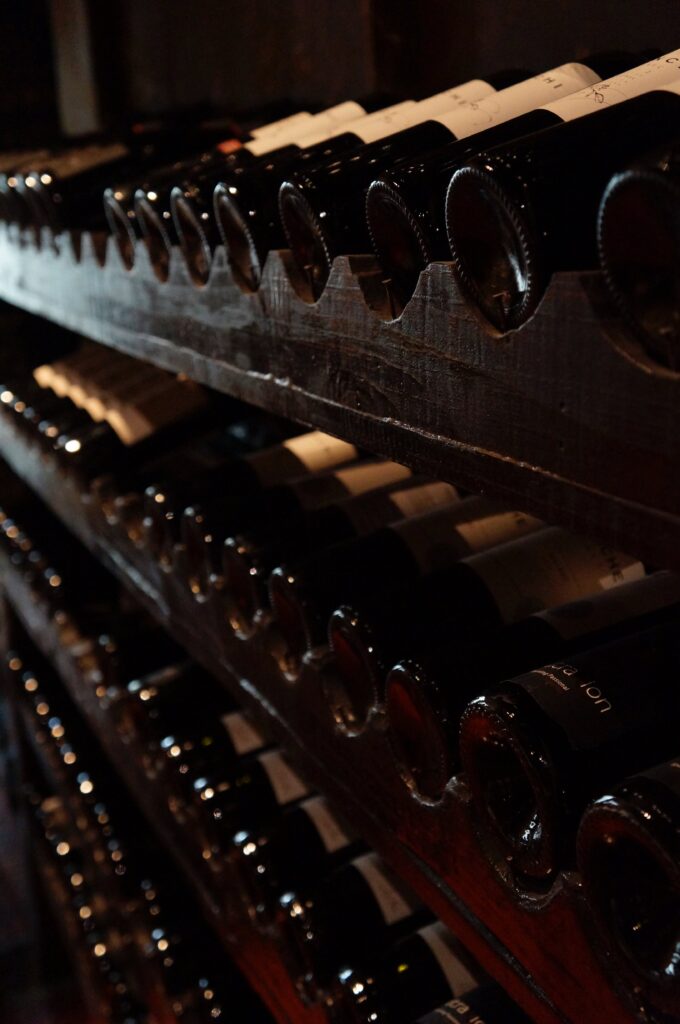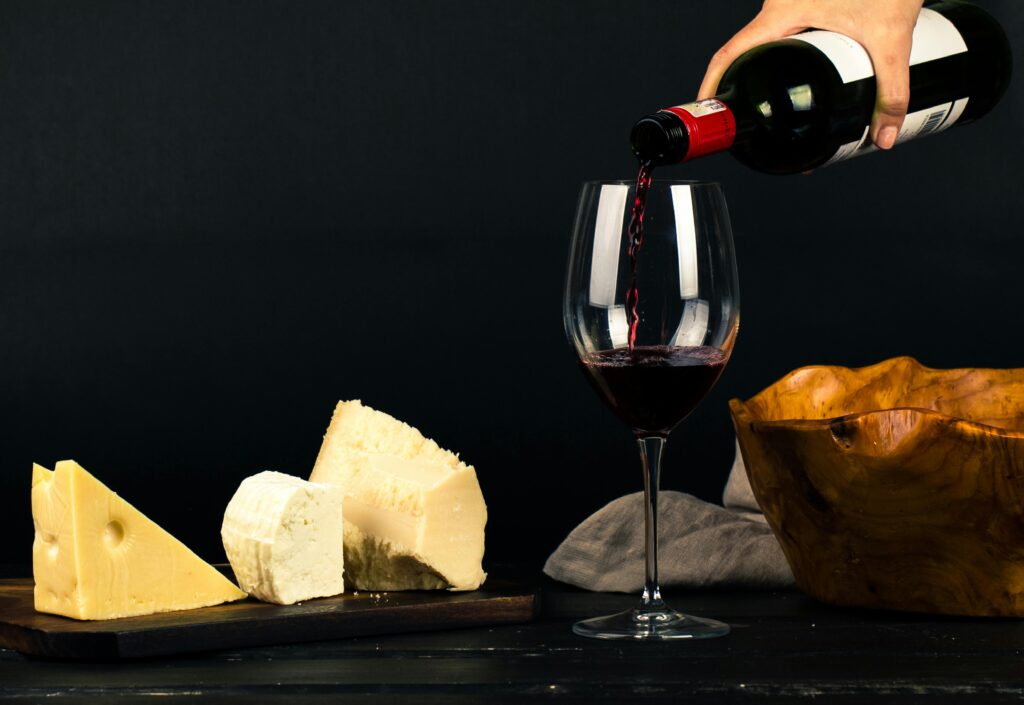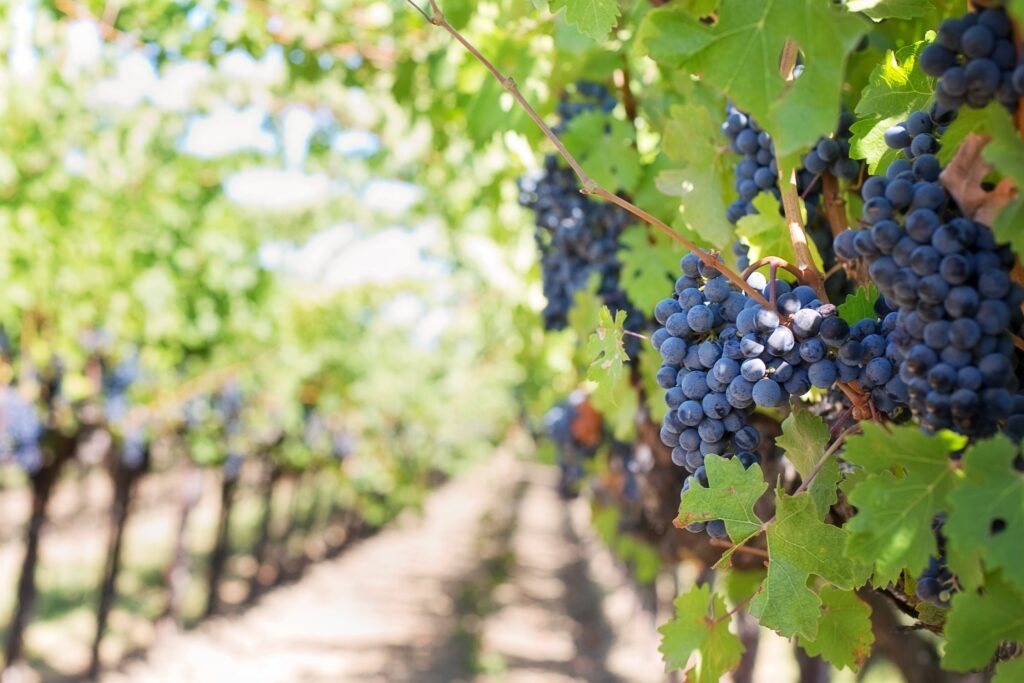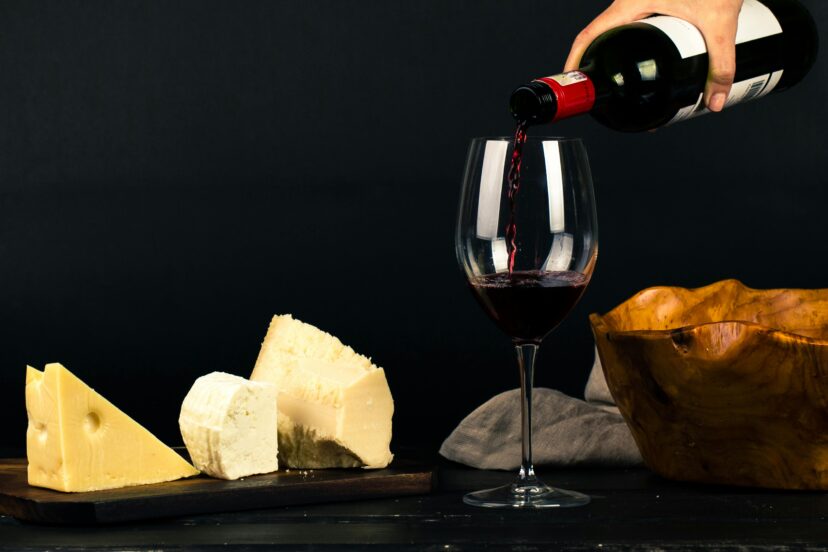Wine Insurance
I never thought I would need insurance for my collection of wines until the day I accidentally knocked over a bottle of rare vintage Bordeaux. As the deep crimson liquid spilled across the floor, panic washed over me. But then, I remembered I had Wine Insurance. It may sound strange to some, but in the world of wine enthusiasts, it’s a growing trend. Just like insuring a car or a home, wine insurance ensures that your prized bottles are financially protected in case of accidents, breakages, or even theft. With the increasing popularity of collecting and investing in wines, it seems like this unique form of insurance is becoming a necessary safeguard for wine lovers around the world.
Understanding Wine Insurance
Definition of wine insurance
Wine insurance is a specialized form of insurance that provides coverage for the damage, loss, or theft of wine. It is designed to protect the financial investment of wine collectors, businesses in the wine industry, and even individuals who frequently travel with valuable wine bottles.
The importance of wine insurance
Wine insurance is important for several reasons. Firstly, wine collections can be extremely valuable, with some rare bottles fetching prices in the thousands or even millions of dollars. Without insurance, an unfortunate incident like a break-in or a natural disaster could result in significant financial loss.
Additionally, wine is a delicate product that can easily be damaged or spoiled. Fluctuations in temperature and humidity, as well as improper storage conditions, can have a detrimental effect on the quality and value of the wine. Having insurance coverage ensures that collectors are protected in case of any unforeseen circumstances.
How it works
Wine insurance works similarly to other types of insurance. Wine collectors or businesses interested in obtaining coverage must first contact an insurance company or a specialized broker. They will provide information about the size and value of their wine collection, as well as their specific needs and concerns.
The insurance provider will then evaluate the risk associated with insuring the collection and provide a quote for the coverage. If the collector agrees to the terms and conditions, they will pay the premium and the policy will be in effect.
In the event of a covered loss or damage, the collector must report the incident to the insurance company. They may be required to provide evidence of the value of the wine, such as appraisals or purchase receipts. Once the claim is approved, the insurance company will provide compensation based on the terms of the policy.
Types of Wine Insurance
Comprehensive wine insurance
Comprehensive wine insurance offers the broadest coverage for wine collections. It typically includes protection against damage, spoilage, theft, and transportation incidents. This type of insurance is ideal for serious wine collectors who have a substantial investment in their collection and want to ensure comprehensive coverage.
Travel wine insurance
Travel wine insurance is specifically designed for individuals who frequently travel with valuable wine bottles. It provides coverage for loss, damage, or theft that may occur during transportation. Whether traveling for personal or business purposes, this type of insurance offers peace of mind for those who cannot bear the thought of losing their precious wine bottles while on the move.
Wine collection insurance
Wine collection insurance caters to individuals or businesses with significant wine collections. It covers loss or damage caused by factors such as fire, flood, theft, or accidental breakage. This type of insurance is particularly appealing to collectors who have invested a considerable amount of time and money in building their wine collection and want to protect their assets.
Business wine insurance
Business wine insurance is specifically tailored to the needs of wine-related businesses, such as vineyards, wineries, retailers, and restaurants. It covers various aspects of the business, including inventory, equipment, and liability. This type of insurance is crucial for protecting the financial stability of wine businesses and ensuring they can recover from unexpected events without major financial setbacks.

How to Evaluate Your Wine’s Value for Insurance
Appraising vintage wines
Appraising vintage wines is a crucial step in evaluating the value of a wine collection for insurance purposes. This process involves assessing the rarity, age, condition, and provenance of each bottle to determine its market value. Professional appraisers or wine experts can provide valuable insights and documentation to support the value of the collection.
Understanding market value
Market value plays a significant role in determining the insurance coverage and premium rates for a wine collection. It refers to the current price at which a particular wine, or a collection as a whole, would sell in the market. Factors such as supply and demand, the reputation of the winemaker, and the vintage year influence the market value of wines.
Determining replacement cost
Replacement cost is the amount it would take to replace a wine bottle or a collection with a similar or equivalent item. This includes the cost of the wine itself, as well as any associated expenses such as delivery fees or taxes. It is important to accurately determine the replacement cost of a wine collection to ensure appropriate coverage in case of loss or damage.
Factors Contributing to Insurance Cost
Size of wine collection
The size of a wine collection significantly impacts the insurance cost. Generally, the larger the collection, the higher the premium. This is because larger collections typically have a higher overall value and may require more comprehensive coverage. Insurance providers consider the number of bottles, the rarity of the wines, and the overall value when determining the cost of coverage.
Storage conditions
The storage conditions of the wine collection also affect the insurance cost. Proper storage, including consistent temperature, humidity control, and protection from light, is crucial for maintaining the quality and value of the wine. Insurance providers may require evidence that the collection is stored in a suitable environment to minimize the risk of damage or spoilage.
Individual wine bottle value
The value of individual wine bottles within a collection is another factor that contributes to the insurance cost. Rare or highly sought-after wines with higher market values may require additional coverage or result in higher premiums. Collectors with particularly valuable bottles should ensure that their insurance policy adequately reflects the value of these unique bottles.
Location of storage
The location where the wine collection is stored can also impact the insurance cost. Factors such as the crime rate in the area, proximity to potential hazards like flood zones or earthquake-prone areas, and accessibility to the collection can influence the risk of loss or damage. Insurance providers may consider these factors when determining the cost of coverage.

Understanding Insurance Policies
Wine damage and spoilage
Insurance policies for wine typically cover damage or spoilage caused by various factors, such as fire, smoke, water, mold, and infestation. If a wine bottle becomes undrinkable due to these reasons, the insurance policy may provide compensation for the loss. However, it is important to review the specific terms and conditions of the policy to understand the extent of coverage and any exclusions.
Wine thefts & losses
Insurance policies commonly offer coverage for wine thefts and losses. If a wine collection is stolen or goes missing, the policyholder can file a claim to recover the value of the stolen or lost bottles. Proof of theft or loss, such as a police report or detailed documentation, may be required to validate the claim.
Transportation coverage
Transportation coverage is an essential component of wine insurance, especially for collectors who frequently move their wine bottles. Whether shipping bottles to a buyer or transporting them to a tasting event, insurance policies often provide coverage for loss, damage, or theft that occurs during transit. It is important to understand the specific terms and conditions of the transportation coverage to ensure proper protection.
Natural disasters
Insurance policies may also cover losses or damage to wine collections caused by natural disasters, such as earthquakes, floods, or hurricanes. These events are often beyond the control of the collector and can result in significant financial loss. Having insurance coverage for natural disasters provides peace of mind and financial protection in the face of unpredictable forces of nature.
How to Get Wine Insurance
Contacting insurance companies
To get wine insurance, individuals or businesses can start by contacting insurance companies that offer specialized coverage for wine collections. It is important to inquire about their experience and expertise in insuring wine, as well as the specific details of the policies they offer.
Finding brokers specialized in wine insurance
Another option is to work with insurance brokers who specialize in wine insurance. These brokers have in-depth knowledge of the wine industry and can help navigate the complexities of obtaining appropriate coverage. They have established relationships with insurance companies and can provide valuable advice and assistance throughout the insurance process.
Comparing quotes
It is advisable to obtain quotes from different insurance providers or brokers to compare coverage options and premiums. This allows individuals or businesses to evaluate the value and benefits offered by each policy and make an informed decision. Care should be taken to understand the differences in coverage and any exclusions or limitations that may apply.
Understanding policy terms and conditions
Before purchasing a wine insurance policy, it is crucial to carefully review the terms and conditions. This includes understanding the coverage limits, deductible amounts, exclusions, and any specific requirements for maintaining the coverage. By thoroughly reading and understanding the policy, collectors can ensure that their wine collection is adequately protected.

How to Claim Wine Insurance
Reporting damage or loss
To initiate a claim, it is important to promptly report any damage, spoilage, theft, or loss to the insurance company. This should be done as soon as the incident is discovered to ensure a smooth claims process. Reporting the incident promptly allows the insurance company to start the investigation and assessment process.
Providing proof of value
When filing a claim, it is necessary to provide proof of the value of the wine collection. This can include appraisals, receipts, catalogs, or any other documentation that demonstrates the authenticity and value of the wine bottles. Detailed records and photographs of the collection can also serve as valuable evidence in the claim process.
Working with insurance adjusters
Insurance adjusters play a crucial role in the claims process. They assess the damage or loss, investigate the circumstances, and determine the appropriate amount of compensation. It is important to cooperate with the adjuster, provide any requested documentation or information, and communicate openly to ensure a fair and efficient claims settlement.
Understanding payout processes
The payout process for a wine insurance claim varies depending on the policy and the insurance company. After a claim is approved, the insurance company will typically reimburse the policyholder for the value of the damaged, spoiled, stolen, or lost wine bottles. The payout may be in the form of cash, replacement bottles, or a combination of both, depending on the policy terms and conditions.
Common Misconceptions About Wine Insurance
All home insurance policies cover wine
Contrary to popular belief, standard home insurance policies may not provide sufficient coverage for wine collections. Most home insurance policies have limited coverage for valuable items, including wine. It is important to specifically inquire about wine coverage or obtain a separate policy to adequately protect the collection.
Wine insurance is not necessary
Some individuals may believe that wine insurance is an unnecessary expense. However, considering the financial investment and potential risks involved, wine insurance is essential for protecting the value of a collection. It provides peace of mind and financial protection in case of loss, damage, or theft.
All types of damage are covered
While wine insurance generally covers various types of damage, it is important to carefully review the terms and conditions of the policy. Some policies may have exclusions or limitations on certain types of damage, such as natural disasters or improper storage conditions. Understanding these limitations helps in managing expectations and ensuring proper coverage.
Wine Insurance Case Studies
Event insurance for wine festivals
Wine festivals are popular events that bring together wine enthusiasts, connoisseurs, and industry professionals. Organizers of wine festivals can obtain event insurance to protect their investment and mitigate potential risks. This type of insurance may cover aspects such as liability, cancellation, weather-related incidents, and loss or damage to wine inventory.
Claims made on rare or expensive wines
Instances of claims made on rare or expensive wines highlight the importance of wine insurance. Collectors or businesses with valuable bottles can experience significant financial loss if these bottles are damaged, spoiled, or stolen. However, with proper insurance coverage, they can be compensated for the loss and recover part or all of the value of the wine.
Impacts of natural disasters on insured collections
Natural disasters can have devastating effects on wine collections. Flooding, earthquakes, fires, and hurricanes can destroy entire wine cellars and cause irreparable damage to valuable bottles. Insured collections, however, stand a better chance of recovering from such events, as insurance coverage can provide the necessary financial support to rebuild and replace the damaged wine.
Future Trends in Wine Insurance
Impact of climate change
One significant future trend in wine insurance is the impact of climate change. As global temperatures rise and weather patterns become increasingly volatile, the risk of damage to wine collections from extreme weather events also increases. Insurance providers may need to adjust their policies and coverage to account for these changing risks.
Digitalization and blockchain verification
Digitalization and blockchain technology are likely to play a more prominent role in wine insurance in the future. These technologies can provide enhanced security and transparency in verifying the authenticity and value of wine bottles. Digital records, including blockchain-backed certificates of authenticity, can simplify the claims process and reduce the risk of fraud.
Market fluctuations and insurance cost
Market fluctuations in the wine industry can also influence the cost of insurance. As the value of certain wines fluctuates over time, insurance providers may need to adjust coverage limits or premiums to reflect these changes. Wine collectors and businesses should stay informed about market trends and communicate with their insurance providers to ensure their coverage remains adequate.
FINAL THOUGHTS
In conclusion, wine insurance is a crucial aspect of protecting the financial investment and passion that goes into building and maintaining a wine collection. By understanding the different types of wine insurance available, evaluating the value of the collection, and working with insurance providers, individuals and businesses can ensure that their wine is properly protected. While misconceptions about wine insurance exist, the importance of specialized coverage for wine collections cannot be overstated. As the wine industry evolves and faces new challenges, future trends in wine insurance will emerge, including the impact of climate change and the adoption of digital technologies. Ultimately, wine insurance provides collectors and businesses with peace of mind and financial protection in an ever-changing and unpredictable world.





